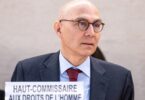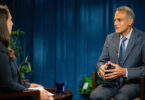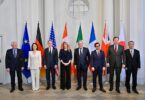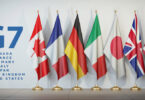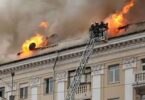Ursula Perano
WASHINGTON DC: William Walker, commanding general of the D.C. National Guard (NG), testified Wednesday that a three-hour delay in approval for National Guard assistance during the Jan. 6 Capitol attack was exacerbated by “unusual” restrictions on his authorities by Pentagon leadership.
Why it matters: Walker testified that if Army Secretary Ryan McCarthy had not prohibited him in a Jan. 5 memo from using a “Quick Reaction Force,” he would have “immediately” sent National Guard troops to the Capitol after receiving a “frantic call” from then-Capitol Police Chief Steven Sund.
Walker testified that he immediately alerted Pentagon leadership of Sund’s request from backup after the phone call at 1:49 p.m.
He said that on a 2:30 phone call, Army officials were concerned about the “optics” of having uniformed Guardsmen at the Capitol.
Approval eventually came three hours and 19 minutes later from acting Defense Secretary Christopher Miller, according to Walker’s testimony.
What they’re saying: Walker told the Senate Rules and Homeland Security committees that a Quick Reaction Force is normally “a commander’s tool to go help either a civilian agency, but more typically, to help the National Guardsmen who were out there and need assistance.”
Walker testified that the Jan. 5 memo required the secretary of the Army to approve the movement of deployed Guardsmen from one traffic control point to another — which he said had never happened before in his 19 years of experience.
Walker said he was told that deploying the Quick Reaction Force could only be used as a “last resort in response to a request from an appropriate civil authority.”
The big picture: The timeline over when National Guard requests were made and granted has been a key point of contention in congressional hearings examining the security failures surrounding the Capitol riots.
At House hearings last week, the former and current Capitol Police chiefs testified that the House Sergeant at Arms Paul Irving took an hour to approve a request for National Guard backup. Irving denies the delay.
Of note: Walker also told the Senate on Wednesday that the D.C. National Guard received “immediate approval” to deploy forces during Black Lives Matter protests last summer, in contrast to the delays faced during the Jan. 6 riots by Trump supporters.

